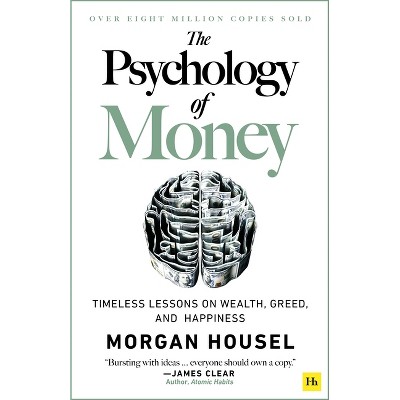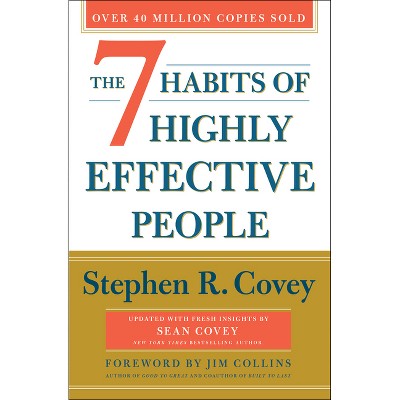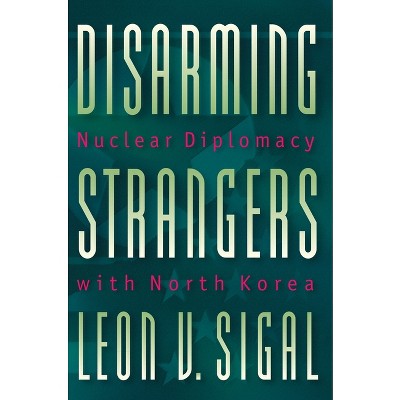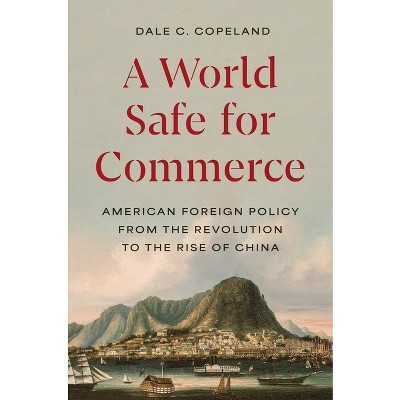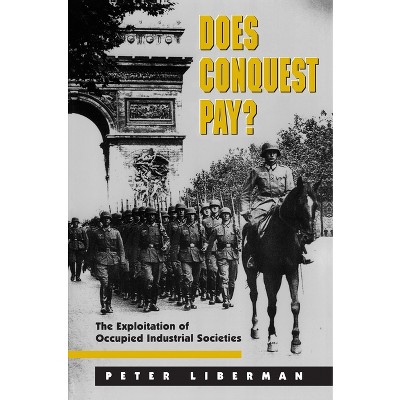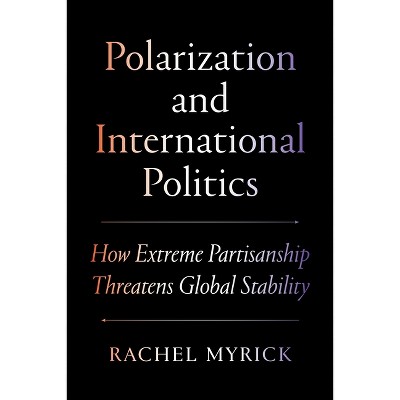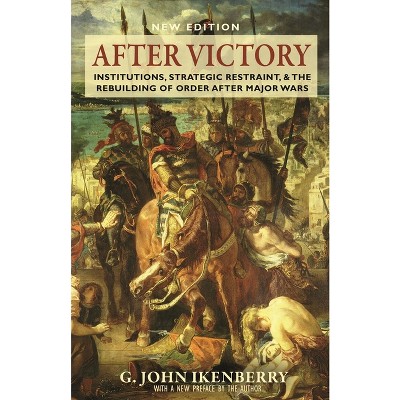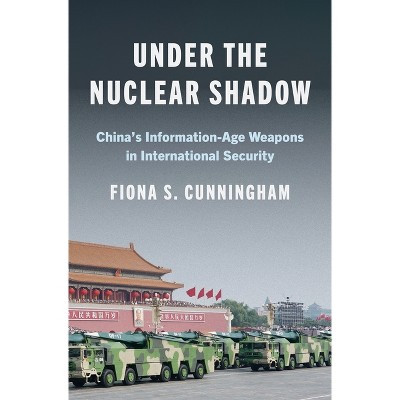Appeasing Bankers - (Princeton Studies in International History and Politics) by Jonathan Kirshner (Paperback)

About this item
Highlights
- In Appeasing Bankers, Jonathan Kirshner shows that bankers dread war--an aversion rooted in pragmatism, not idealism.
- About the Author: Jonathan Kirshner is professor of government at Cornell University.
- 248 Pages
- Business + Money Management, Economic History
- Series Name: Princeton Studies in International History and Politics
Description
Book Synopsis
In Appeasing Bankers, Jonathan Kirshner shows that bankers dread war--an aversion rooted in pragmatism, not idealism. "Sound money, not war" is hardly a pacifist rallying cry. The financial world values economic stability above all else, and crises and war threaten that stability. States that pursue appeasement when assertiveness--or even conflict--is warranted, Kirshner demonstrates, are often appeasing their own bankers. And these realities are increasingly shaping state strategy in a world of global financial markets. Yet the role of these financial preferences in world politics has been widely misunderstood and underappreciated. Liberal scholars have tended to lump finance together with other commercial groups; theorists of imperialism (including, most famously, Lenin) have misunderstood the preferences of finance; and realist scholars have failed to appreciate how the national interest, and proposals to advance it, are debated and contested by actors within societies. Finance's interest in peace is both pronounced and predictable, regardless of time or place. Bankers, Kirshner shows, have even opposed assertive foreign policies when caution seems to go against their nation's interest (as in interwar France) or their own long-term political interest (as during the Falklands crisis, when British bankers failed to support their ally Margaret Thatcher). Examining these and other cases, including the Spanish-American War, interwar Japan, and the United States during the Cold War, Appeasing Bankers shows that, when faced with the prospect of war or international political crisis, national financial communities favor caution and demonstrate a marked aversion to war.
From the Back Cover
"Appeasing Bankers seamlessly combines historical, economic, and political analysis and adds much to our understanding of the domestic foundations of national security policy. Kirshner's logic is impeccable and his prose highly engaging. This book is a tremendous accomplishment."--Louis W. Pauly, University of Toronto
"Appeasing Bankers makes a pathbreaking contribution to the study of conflict in international relations. With characteristic verve, Jonathan Kirshner argues that 'bankers dread war'--a comforting thought in an era of financial globalization. Historical case studies, explored with a meticulous attention to detail, persuasively demonstrate that financial interests tend to be among the most resistant of all societal elements to appeals for war or policies that risk war. This book is a must read for specialists in international relations or international political economy."--Benjamin J. Cohen, University of California, Santa Barbara
"Appeasing Bankers is beautifully written and a genuine pleasure to read. Kirshner artfully manages the difficult task of balancing rich and engaging historical detail with cogent analytic force. His arguments are original and important, and they are carefully supported by an array of primary and secondary sources. This book promises to become a classic of international political economy."--Jacqueline Best, University of Ottawa
"This insightful, well-written book makes a significant contribution to our understanding of the role of interest groups in foreign policy and the relation between economics and security in international politics. Kirshner finds a strong generalization--namely, that financial interests are cautious about war, more so than other interest groups, regardless of time period or country. It is rare in the study of politics to find an empirical regularity as deep-seated and significant as this one."--Michael Mastanduno, Dartmouth College
Review Quotes
"Appeasing Bankers is a must read for students and scholars of international finance. Kirshner provides evidence of the historically consistent and global regularity of the financial destructiveness of war, and a compelling case for the pacific preferences of bankers that should prompt further study of additional cases."---Anastasia Xenias, Political Science Quarterly
"[T]his is a most stimulating book; attractively written, and demonstrating a thorough grasp of all the wide-ranging historical circumstances that it treats."---Forrest Capie, The International History Review
"Kirshner is able to construct a well-theorised, thoroughly researched study on how the financial community reacts to the possibility of war. This in itself is no small feat, as it convincingly contradicts various theories that indict finance as the catalyst of Western imperialism."---Patrick Shea, Political Studies Review
"Kirshner's book is interesting as it avoids multifaceted liberal concepts but rather sticks to one key argument based on rich historical accounts. As such, this book should interest any student of globalization and any scholar questioning the role of bankers and financiers in war and peace."---Lars Seland Gomsrud, Journal of Peace Research
"Scholars have long debated the role of bankers and businesspeople in matters of war and peace. Some claim that states frequently go to war in search of markets and profits, whereas others see economic interests as the great constituency for peace. In this richly historical and wonderfully written book, Kirshner provides the definitive account of the policy preferences of the financial community in countries on the brink of hostilities."-- "Foreign Affairs"
"The book is richly rewarding and full of insights into the behind the scenes power plays that lay behind the major, and far reaching, policy decisions reviewed through the five case studies."---Richard C. K. Burdekin, EH.net
"Winner of the 2008 Best Book Award, International Security Studies Section of the International Studies Association"
About the Author
Jonathan Kirshner is professor of government at Cornell University.Shipping details
Return details
Trending Business & Law Books

